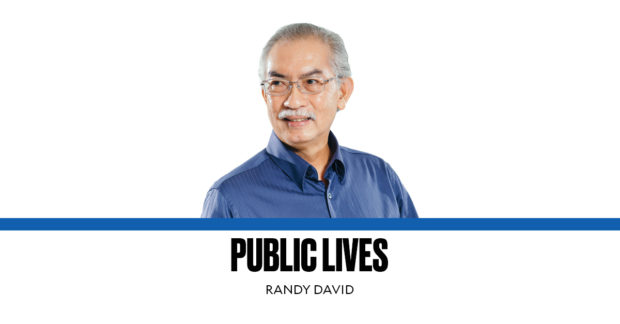Two weeks after President Marcos issued Proclamation No. 297, declaring an end to the COVID-19 public health emergency, I found myself infected with the virus. It was ironic, as I had felt triumphant in avoiding the deadly pathogen, only to be struck down by it. The infection crept up slowly, starting with a dull ache in the right corner of my throat. At first, I hoped it was just the usual dryness that occurs during sleep, but the soreness persisted even after gargling with salted warm water. My imagination painted a vivid picture of the coronavirus, with its crown of spikes, maliciously attacking every cell in my respiratory system. To confirm its presence, I took a rapid antigen test, which yielded an inconclusive result. However, I had a strong intuition that the virus was already replicating inside me. My suspicions were confirmed when I learned that my daughter, Kara, who was supposed to speak at a graduation ceremony that day, was also feeling sick and tested positive. We had recently celebrated my other daughter Jika’s birthday, and she too contracted the virus. It seemed like we were hit by the garden variety Omicron variant, which is mild but highly contagious. Despite all of us being fully vaccinated, including two booster shots, and having previously had COVID, I was the one experiencing the most severe symptoms. While my family members had mild symptoms lasting only a few days, mine persisted for two weeks as if the virus was determined to infect every untouched cell in my body. What began as a slight scratch in the throat escalated into a full-blown inflamed throat the next day. My lymph nodes swelled, indicating that my immune system was fighting back. I had a mild fever for four days, which I tried to alleviate with large amounts of fresh ginger brew. One recurring issue I faced during sickness was lack of sleep. I would wake up drenched in sweat, feeling a vague sense of breathlessness. A few times, I used a pulse oximeter to monitor my blood oxygen saturation levels. My main concern was the virus reaching my lungs. The lowest reading I got was 92, while my normal range is 97-98. I made a firm decision that if it ever dropped below 90, I would check myself into a hospital. Sadly, my brother Dante had contracted the deadly Delta variant and succumbed to it when his lungs were overwhelmed by the cytokine storm. He was the first in the family to be fully vaccinated, but like most of us, his siblings, he had chronic asthma inherited from our father’s side. As the coronavirus infiltrated my body, I had to listen to its signals. Doing so, alone in my room while at the peak of illness, often induced panic instead of calm. I thought of Karina, who passed away from heart failure just before the pandemic, and imagined her soothingly rubbing my back as I coughed, helping me through the night. For an entire week, I diligently performed rapid antigen tests each morning, feeling more discouraged each time it came back positive. Realizing that I had to allow the disease to run its course, I stopped testing after using up a box of five antigen kits. On the fourth day, I lost my sense of smell, but surprisingly, my sense of taste and appetite remained intact. Then, on the tenth day, I woke up feeling as though a heavy fog had lifted from my room. The air felt lighter, and my nausea had disappeared. I did another rapid antigen test, fully expecting another positive result. To my astonishment, it was negative. I repeated the process, ensuring a more reliable sample, and once again, the test confirmed that I was finally free of COVID. We all celebrated when Director General Tedros Adhanom Ghebreyesus of the World Health Organization declared the end of the COVID-19 public health emergency. However, amidst the applause, we failed to fully grasp his message: COVID is still a cause for concern. While the strain on healthcare systems may have eased, uncertainties remain regarding the virus’s potential evolution. This lull should not breed complacency. Instead, we should build upon the capabilities we developed during the height of the pandemic, rather than discarding them like remnants of a bad dream.
Denial of responsibility! VigourTimes is an automatic aggregator of Global media. In each content, the hyperlink to the primary source is specified. All trademarks belong to their rightful owners, and all materials to their authors. For any complaint, please reach us at – [email protected]. We will take necessary action within 24 hours.


